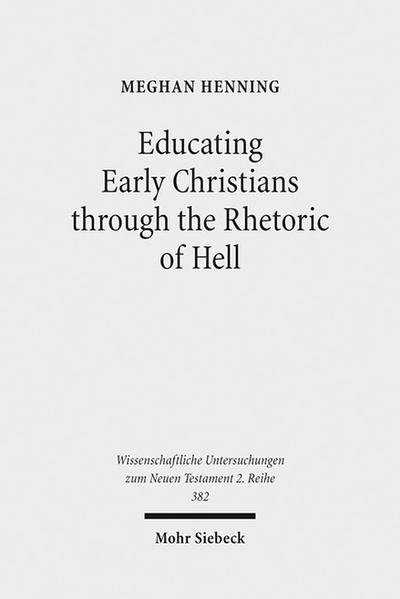HENNING,M., Educating Early Christians through the Rhetoric of Hell. Tübingen 20
Educating Early Christians through the Rhetoric of Hell. „Weeping and Gnashing of Teeth“ as Paideia in Matthew and the Early Church. 1. Aufl. Tübingen, Mohr Siebeck, 2014.
23 x 16 cm. XIII, 294 S. Fadenbindung. (Wissenschaftliche Untersuchungen zum Neuen Testament 2. Reihe, 382). ISBN 9783161529634.
In this book, Meghan Henning explores the rhetorical function of the early Christian concept of hell. Building upon classical rhetorical techniques and the descriptions of Hades in Greek and Roman literature, she contends that the ancient Christian concept of hell was developed as a part of a distinctively Christian paideia. She traces the history of this interpretive process, illustrating the ways in which early Christians drew upon the Greek and Roman system of ethical and cultural education, to create and maintain their own culture. By doing this the author demonstrates that Matthew’s gospel is the nexus in which early Christian ideas about eternal punishment begin to crystallize, and becomes the focal point for later apocalyptic and patristic authors who interpret and reshape Matthew’s „weeping and gnashing of teeth“ in a variety of pedagogical contexts.
Bestellnummer: 2724VB
Gebundener Ladenpreis: EUR 104,--

